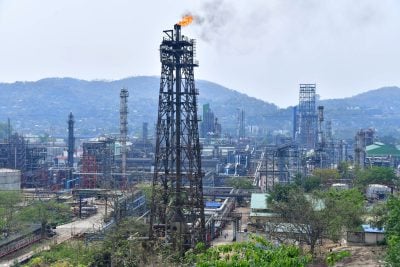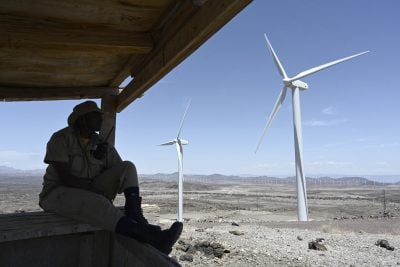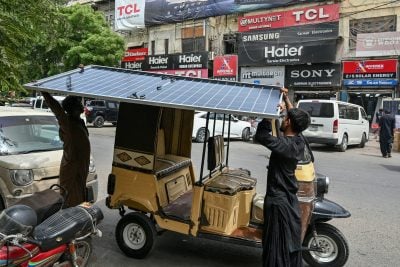Nations around the world have reached a landmark deal to limit the use of fossil fuels at COP28 in Dubai. Over 200 countries agreed to an agreement which calls for “Reducing both consumption and production of fossil fuels, in a just, orderly and equitable manner so as to achieve net zero by, before, or around 2050 in keeping with the science”.
COP28 president Sultan al-Jaber, also the head of the Abu Dhabi National Oil Company, bought the gavel down on the deal after a rapid debate a day after the conference was expected to have officially closed.
“We have language on fossil fuels in our final agreement for the first time ever,” said Jaber.
It is the first time that a reference to the transition away from fossil fuels has been agreed in the series of landmark conferences. Organisers hailed “an unprecedented reference to transition away from all fossil fuels” as part of what they called the “UAE consensus”.
“After two weeks of negotiations at COP28, the UAE Agreement keeps our North Star of limiting global warming below 1.5C within reach,” organisers said.
Consequences for Africa
The deal will have lasting consequences for African nations which were considering exploiting fossil fuel reserves in a bid to develop their economies. Some African countries have long advocated that they must be allowed to exploit their resources, or at the very least continue to produce so-called “transition fuels” like natural gas.
In return for their agreement to transition away from fossil fuels they will expect substantial financial support from wealthier nations – including follow-through on the $100bn a year pledge agreed by rich countries in 2009, which went unmet for years – and the rollout of new Just Energy Transition Partnerships.
Kenya’s climate change envoy Ali Mohamed told the BBC that Kenya “can live with this text”.
Beginning of the end for fossil fuels
After the announcement of the deal – which follows a fortnight of intense diplomacy and threats by some nations to walk away from a weaker deal – UN Climate Change executive secretary Simon Stiell said it was the beginning of the end for fossil fuels.
“COP28 also needed to signal a hard stop to humanity’s core climate problem – fossil fuels and their planet-burning pollution. Whilst we didn’t turn the page on the fossil fuel era in Dubai, this outcome is the beginning of the end.
“We are currently headed for just under 3 degrees. It still equates to mass human suffering, which is why COP28 needed to move the needle further. The global stocktake showed us clearly that progress is not fast enough, but undeniably it is gathering pace.”
In other references to fossil fuels, the agreement also calls for “accelerating zero and low emissions technologies, including, inter alia, renewables, nuclear, abatement and removal technologies, including such as carbon capture and utilisation and storage, and low carbon hydrogen production, so as to enhance efforts towards substitution of unabated fossil fuels in energy systems” and “phasing out of inefficient fossil fuel subsidies that encourage wasteful consumption and do not address energy poverty or just transitions, as soon as possible.”
Writing on X (formerly Twitter) UN secretary-general António Guterres hailed the text after “many years in which the discussion of this issue was blocked”.
“Science tells us that limiting global heating to 1.5°C will be impossible without the phase out of fossil fuels. This was also recognized by a growing & diverse coalition of countries at #COP28. The era of fossil fuels must end – and it must end with justice & equity.”
Yet he also reserved strong words for unnamed countries who opposed the deal.
“To those who opposed a clear reference to phase out of fossil fuels during the #COP28 Climate Conference, I want to say: Whether you like it or not, fossil fuel phase out is inevitable. Let’s hope it doesn’t come too late.”
Want to continue reading? Subscribe today.
You've read all your free articles for this month! Subscribe now to enjoy full access to our content.
Digital Monthly
£8.00 / month
Receive full unlimited access to our articles, opinions, podcasts and more.
Digital Yearly
£70.00 / year
Our best value offer - save £26 and gain access to all of our digital content for an entire year!

 Sign in with Google
Sign in with Google 



